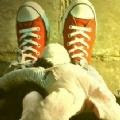WEEK 1 READING NOTES
THE LANDSCAPE OF GRAPHIC DESIGN EDUCATION
Meredith Davis
"What is going on in this plethora of programs? How are they alike and different in the ways they address issues regarding the profession of graphic design? And what challenges do they face in educating students for the 21st century?"
CONTINUING CONTROVERSY OVER THE DEFINITION OF THE PROFESSIONAL DEGREES
• A discipline is a branch of learning that has a body of knowledge, modes of inquiry, and historical and critical perspective on both as the relate to the subject
• The role of colleges and universities now engaged in professional education is to develop students with respect to both the discipline and the profession of graphic design
• …the essential competencies that enable design practitioners to be predictive and responsible for transforming the field across their professional careers
SHIFTING PROFESSIONAL LANDSCAPE
• Introduction of the computer and rapid growth of technology
• Increased public access to the means of production and dissemination
• Extreme highs and lows in the economy
• Public concern for the environment
• Consumer activism have rewritten the value system of design
• Knowledge as relational and dynamic
THE EMERGING RESEARCH CULTURE
• Creates a need for non-proprietary research in the academy
• Places new research demands on university faculty
• Challenges programs to differentiate between graduate and undergraduate curricular content
• Raises the question of “what is worth doing?” in doctoral research programs
• Applying practices borrowed from more established research disciplines
• Developing new methods specific to design
• Engaging audience as co-creators of artifacts and services
SHORTFALL IN CHALLENGING LITERATURE
• Specifically for
• Designing learning strategies and pedagogy match the academic environment
INCREASING USE OF ADJUNCT FACULTY & ADMINSTRATION GENERATION GAP
• Concern over who is minding the store in graphic design education
• Generational gap in the current professoriate
WHAT IS RESEARCH?
Leedy Ormrod
WHAT RESEARCH IS NOT
1. Research is not mere information gathering
2. Research is not mere transportation of facts from one location to another
3. Research is not merely rummaging for information
4. Research is not a catchword used to get attention
WHAT RESEARCH IS
1. Research originates with a question or problem
2. Research requires clear articulation of a goal
3. Research requires a specific plan for proceeding
4. Research usually divides the principle problem into more manageable
5. Research is guided by the specific research problem, question, or hypothesis
6. Research accepts certain critical assumptions
7. Research requires the collection and interpretation of data in a attempt to resolve the problem that initiated the research
8. Research is, by its nature, cyclical or, more exactly, helical









